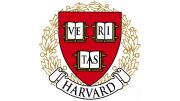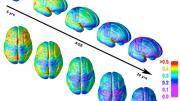The 2020 Nobel Prize in chemistry was awarded jointly this morning to Emmanuelle Charpentier, of the Max Planck Unit for the Science of Pathogens, Berlin, and Jennifer A. Doudna, Ph.D. ’89, of the University of California, Berkeley, for their development of CRISPR, the genetic “scissors” widely used in genome editing, now a fundamental tool for life-sciences research.
The prize announcement cited researchers’ use of CRISPR to “change the DNA of animals, plants and microorganisms with extremely high precision. This technology has had a revolutionary impact on the life sciences, is contributing to new cancer therapies and may make the dream of curing inherited diseases come true.” Read the news release here. According to the announcement:
Charpentier published her discovery in 2011. The same year, she initiated a collaboration with Jennifer Doudna, an experienced biochemist with vast knowledge of RNA. Together, they succeeded in recreating the bacteria’s genetic scissors in a test tube and simplifying the scissors’ molecular components so they were easier to use.
In an epoch-making experiment, they then reprogrammed the genetic scissors. In their natural form, the scissors recognise DNA from viruses, but Charpentier and Doudna proved that they could be controlled so that they can cut any DNA molecule at a predetermined site. Where the DNA is cut it is then easy to rewrite the code of life.
Since Charpentier and Doudna discovered the CRISPR/Cas9 genetic scissors in 2012 their use has exploded. This tool has contributed to many important discoveries in basic research, and plant researchers have been able to develop crops that withstand mould, pests and drought. In medicine, clinical trials of new cancer therapies are underway, and the dream of being able to cure inherited diseases is about to come true. These genetic scissors have taken the life sciences into a new epoch and, in many ways, are bringing the greatest benefit to humankind.
Doudna, a graduate of Pomona, earned her doctorate from the Medical School in 1989. She is a Howard Hughes Medical Institute investigator. Some applications of CRISPR technology in research at Harvard are reported in the feature “Engineering Life.” Her work in the laboratory of Nobel laureate Jack Szostak (“How Life Began”) is mentioned here.









